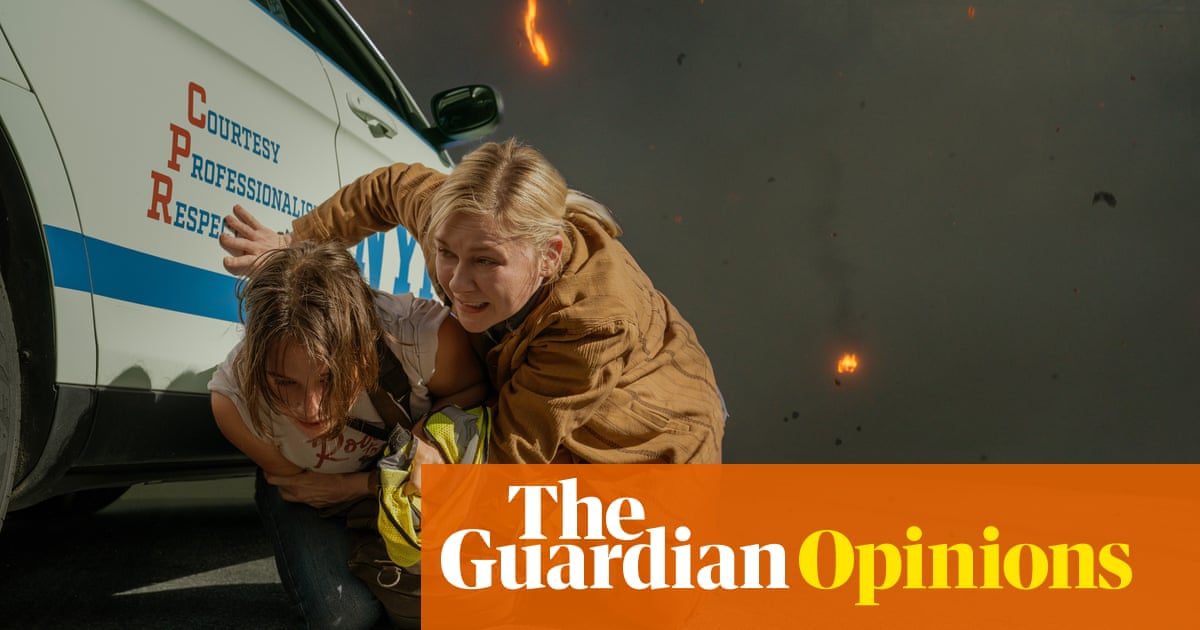
he north London district of Tottenham seems to offer up a rap icon for every generation. Hip-hop group Demon Boyz were among the first to shed American accents in the 1980s; in the late 00s, 16-year-old MC Chip declared himself a “grime scene saviour”, and cracked the glass ceiling of a resistant music industry. More recently, Skepta has led British rap into the mainstream, winning the Mercury prize in 2016.
The district where riots blazed in 1985 and 2011 is now soundtracked by UK drill, a rap subgenre that found its way to the country from the South Side of Chicago, with MCs riding like dirt bikes over revving, lurching bass to punctuate sometimes bleak accounts of life on the roads.
Headie One, AKA 25-year-old Irving Adjei, is the scene’s biggest star and Tottenham’s current golden child. In recent years, he has had Top 10 hits with Stormzy and Dave, and currently sits at No 9 on a track with the Canadian rap giant Drake, who has described Headie as “the best drill artist in the world”. He has also just served a six-month jail term for carrying a knife. His music details the turbulent reality that confronts some of the young rappers coming out of Britain’s inner cities. Hustle and hunger are baked into his stories, captivating a generation currently growing up in UK rap’s golden age.
On Broadwater Farm, the Tottenham estate where Adjei was raised, he says:, “Everyone was extremely motivated to get out, whatever way they can.” We are sitting across from one another at a table in the basement of an east London studio. “You could see that growing up, even though it was family orientated, there was loads of negative stuff going on,” he says. In an early freestyle, shot against a backdrop of Broadwater’s looming towers when Headie was still a teenager, he raps: “Do what comes to mind first, fuck karma.” This restless streak would ultimately push him towards crime.
Tottenham sits at the heart of Haringey, one of London’s most deprived boroughs. . Adjei’s music reflects his environment, vividly relaying the bleak experiences of coastal and county drug lines, and brutal street skirmishes. Prison was the inevitable fallout from such extreme encounters. “A lot of the time people don’t really know what they’re getting into,” he says of life on the roads. There is a reserve in his manner, a quiet in his voice. As he speaks, his eyes shift around the room. “It happens so fast. We’re young; we don’t really know what we’re doing. So when it does hit the fan and you’re in real life-changing situations, you start to double-think: was this worth it?”
The prison system is constantly referenced throughout Adjei’s catalogue, a consequence of spells of incarceration since the age of 17, following convictions for drug and knife possession. In 2014, he was sentenced to 30 months after being caught with nearly £30,000-worth of heroin and cocaine at Aberdeen railway station. The prison portraits brought to the surface in his music are sharp: memories of scrambling eggs in kettles and the rancid smell of mops and buckets. Tap water tinted orange, partners crying in visit halls and periods spent on “basic regime” as a punishment for bad behaviour, with freedoms withered to near nothing. “When you’re put on basic, everything is taken away,” he says. “The only thing that’s not taken away from you is yourself. It’s designed to break you down and to punish you.”
During his bleakest moments, Adjei read books about the new age philosophical concept of the “law of attraction”, which asserts that positive experiences are drawn to an individual by a positive outlook. He says this brought hope into “a situation where a normal person would see it as ‘over, it’s done, you’re going to finish me off for ever’”. He freestyled to pass the time, a tingling sensation settling over him whenever he fed music through his ears, making him realise that other people inside “didn’t feel the music like I did. Not just lyrics or beats, but the emotions, the sounds, the concepts.”
On his first day out of prison in 2017, he recorded a song, filmed the video that afternoon and released it the following day. Rap was now more than a distraction: it could mean salvation. His work rate was frantic; it needed to be to turn his fortunes. “I felt like I was behind in vital years,” he says. “They are the years when people really start to figure out what they want to do. But I was stuck in the same place – it was frustrating. That’s why I was doing everything triple speed.”
Three years later, the urge to reclaim those lost years has led to six mixtapes. And there is an acceptance now about his stretches inside: time away gave him perspective on the years that it also stole.
Early releases Drillers x Trappers, The One and The One Two used acoustics typical of a UK drill scene that was coming into its own, the grumbling 808s and gothic percussions a menacing underlay for Adjei’s frank street diaries: peeks into a concealed Britain. Some songs were menacing, such as Know Better, which came in the aftermath of an attack made on him in 2018. But the music has evolved as he has grown, with melody blossoming. Auto-Tune melts his buttery voice on last year’s Music x Road, which reached No 5 and become the highest-charting drill album ever; at his headline Brixton Academy concert, he took to the stage with a choir. His most recent release, Gang, made with producer Fred Again, went further, a near total departure from drill that pulled in electronic and ambient influences, and features FKA twigs and Jamie xx. “I stopped trying to separate all music and just saw it as music,” he says. “I started to realise that music is a language: you have to listen to it and speak back.”
Gang is closed out by Soldiers, a sombre yet defiant track with grieving piano keys and a blue Sampha hook. “Reminiscing about the roads with your flannel, Radox,” he raps, alluding to illegal days spent out of town with little but a washbag by his side, “now you start to wish you packed it in and got a day job.”
Rappers do not outrun their pasts, but live with them. Last June, Adjei’s car was stopped and searched by police, who uncovered a lock knife. He was granted bail, and spent the summer gracing stages at Wireless and Glastonbury with the possibility of another prison sentence hanging over him. It is a fallout common to UK rappers who have gone quickly from road life to national fame; J Hus and Loski have also been separately charged for carrying weapons. The new money and celebrity can be a foul mix with the lifestyles and associations that came before. “It can go wrong, very easy,” Adjei says. “There’s been times for me when it’s nearly gone wrong, multiple times where I wouldn’t have been talking to you now. When you’re coming from a life where negative things are happening, people ain’t used to you getting into certain positions. That’s when jealousy comes in, hate comes in. People want to get you out of that position. They don’t understand why you’re there and they’re not.”
There is no handbook on how to drop one life and pick up another – the transition is a fumble in the dark, an uncertain stagger between old habits and new realities. “It’s a thin line, and you have to decide how you’re going to deal with things,” he continues. “Are you going to deal with things like someone on this side of the line? Or are you going to deal with things like someone on this side? This side can bring you back to what’s negative. But dealing with things on this side? You’re not used to that. That was the time that I was in at that moment,” he says, referring to when he was found with a knife. “I was trying to work it out.”
Adjei was sentenced in early January, three weeks after his stellar showing on Stormzy’s album Heavy is the Head. Prison was “like going back in time,” he says. “Those kind of situations was my normality years ago. It was a wakeup call that it really is a thin line – one wrong move and it’s all over, it’s back to what you used to dream to get out of.”
His sentence passed while the world withdrew into lockdown. After four months inside, he left prison in a helicopter, roving over country fields and a concrete London skyline. Just as in 2017, music soon followed. First there was Rose Gold, a trap-tinged reflection on Tottenham days gone by and gold-plated jewellery. Weeks later came the Only You Freestyle with Drake. Adjei wades in after Drake’s first half with a flow as nimble as the footballers he references; he mourns for a friend serving 20 years in prison and looks back on years spent outside the law.
The verse encapsulates the pendulum of his life: the Tottenham boy who swung back from the brink. “Swear I’ve seen life from both perspectives,” he raps, finally steadied.
• Only You Freestyle is out now on Relentless Records











